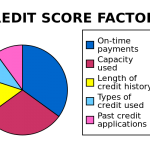In Singapore, the hotel investment market was subdued in Q3 with only one transaction recorded after a strong first half of the year, says a recent research report by Savills Singapore. The research titled, Hotel Sales & Investment’ said although transaction volume decreased by 17.3% QoQ, Singapore’s YTD total stood at 129.3% increase from the same period last year.

The hotel investment market in Singapore kicked off 2H/2019 with the 319-key Bay Hotel Singapore being acquired by a consortium company formed by Datapulse Investment and PAM Holdings, at a purchase price of S$235 million (approximately US$172.6 million or US$541,000 per key).
Savills said that Datapulse Investment holds 5% stake in the consortium while PAM Holdings holds the remaining 95%. While Singapore observed lukewarm investment activity this quarter, the last quarter of 2019 is expected to be buoyant with many high-profile properties currently on sale such as the Andaz hotel, the Mercure and Novotel on Stevens.
In its outlook on the hotel investment market in Singapore, the Savills Research said the local scene anticipates an enthusiastic end of the year with many high-profile/quality assets currently for sale, however, investor’s and seller’s expectations are still not meeting regarding yield and price per room.
The report noted that opportunities in the global hotel investment market remain as Q3/2019 got off to a promising start after a strong 1H/2019 that witnessed a number of high-profile transactions. It said, “with a significant weight of capital targeting real estate in the region, investment activity is expected to remain healthy as deleveraging, fund
expiries and the interest rate environment create new opportunities for investors in select markets.”
The report on hotel investment market, made the following key observations:
- Total Asia-Pacifi c hotel investment volume in Q3/2019 was US$2.4 billion across 79 transactions, down 8.9% quarter-on-quarter (QoQ). While North Asia markets maintained momentum, China and Hong Kong experienced significant downticks in investment volume, affecting the overall figures for the region. Although there was a decline in transaction activity this quarter, total investment volume in the first nine months of the year was up 24.4% compared to the same period in 2018.
- South Korea dominated as the most active market this quarter with a total volume of US$607.5 million across 24 transactions, accounting for 25.2% of Q3/2019 transaction activity in Asia Pacific.
- Japan maintained its solid pace with a number of high quality transactions, recording US$545.3 million across 10 transactions.
- Following closely behind Japan, Australia recorded another busy quarter with transaction activity amounting to US$537.7 million across 27 transactions, accounting for 21% of total investment volume in the region during this quarter.
Elsewhere in South and Southeast Asia, despite the decreasing transaction activity this quarter, the average transaction value of Q3/2019 almost doubled that of the same quarter in 2018, said the Savills Research.
“This demonstrates a boost in quality of hotel transactions driven by steady tourism growth across this emerging region. The total investment volume in Southeast Asia and South Asia reached US$699.7 million, with 83.3% led by cross-border investors.”
In Thailand, one reported deal in Q3/2019 was the sale of Four Points by Sheraton Bangkok Sukhumvit, the report noted.
The report noted that Australia and New Zealand markets achieved an overall increase of 62.5%, contributed by a spike in transaction activity registered in New Zealand this quarter.
“The region reported a combined hotel investment volume of US$657 million across 32 transactions, accounting for 25.6% of total Asia Pacific transaction activity in Q3/2019. With a 33% rise in transaction activity QoQ, Australia witnessed another strong quarter, placing it the third most active market with a total investment volume of US$ 537.7 million across 27 transactions.
In Q3/2019, Australia’s robust investment activity was bolstered by the sale of Accor Invest Hotel Portfolio, including 17 properties and six lease interests across Australia. One of the biggest hotel portfolio offerings was closed by an Australia-based fund and investment management company, iProsperity Group for AU$300 million (approximately US$204.3 million).
The Chinese-backed investment house, iProsperity Group, is a big player in the market that has amassed a strong portfolio of commercial assets since entering the real estate scene several years ago. The group has been actively growing its hotel business, acquiring Pullman on the Park, the biggest hotel deal of last year.”
“The full-service 268-room hotel was purchased by TA Global for a total cash consideration of THB2.3 billion (approximately US$73.3 million or US$273,000 per key). The purchase was funded by 40% internally generated funds and 60% external borrowings. This acquisition is expected to bring synergistic benefi ts to the Malaysia-based group and complement its strategy to enhance its presence in Thailand.”
In its outlining its outlook for the global hotel investment market, the Savills Research made the following predictions:
- Total hotel investment volume of 2019 is expected to exceed that of 2018, driven by the robust performance of 1H/2019 in both matured and emerging markets.
- Savills recorded strong interest from Japanese and overseas investors on recent marketing campaigns conducted by Savills Hotels, collecting more than 10 offers on each recent sale instructions. The demand for Japan hotels remains strong and will continue in 2020.
- Singapore anticipates an enthusiastic end of the year with many high-profile/quality assets currently for sale, however, investor’s and seller’s expectations are still not meeting regarding yield and price per room.
- With the ongoing events in Hong Kong and China, the investment market is expected to pick up the pace following a resolution of the situation.
- While the market for core assets remains highly competitive, investors will continue to seek value through attractive pricing in Southeast Asia or South Asia regions as well as solid secondary cities and core-plus or value-adding opportunities.






